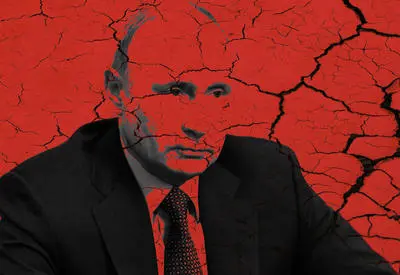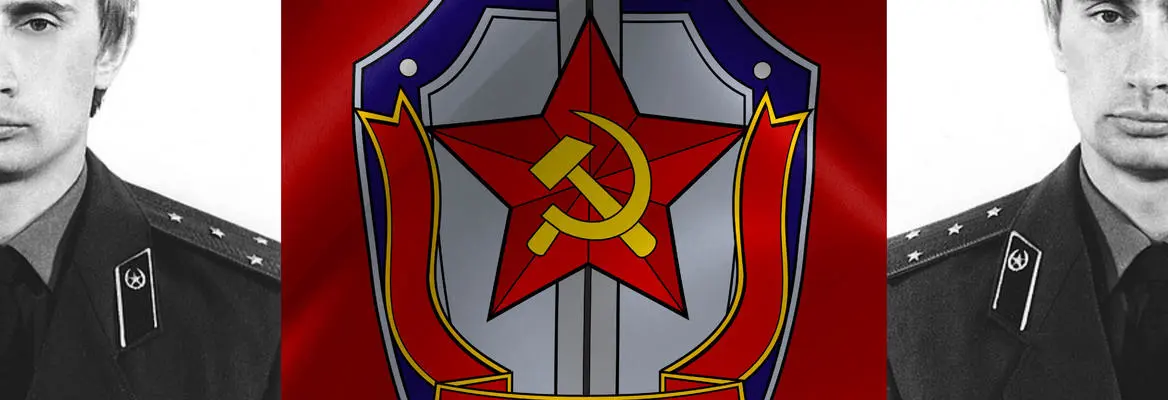The West has struggled to predict and later understand Russia’s invasion of Ukraine. Vladimir Putin is a big reason for that. His KGB past is still mythologised in the West, and he is often portrayed as either a ruthless strategist or a victim of his own paranoia. Jack Barsky, an ex-KGB agent during the Cold War, offers an insight into Putin’s past, his strategy in Ukraine, and highlights the mistakes of Western intelligence and foreign policy when it comes to understanding the war in Ukraine.
There is a mystery and intrigue surrounding Russia and its leader, Vladimir Putin, that feels like a remnant of the Cold War. Putin in particular carries with him some of the darkness and mythology that accompanied the KGB, having served as an agent in the security agency in Dresden, Germany.
Today, when trying to decipher Putin’s motives and tactics in Russia’s war against Ukraine, many Western analysts are left baffled. They swing between the extremes of seeing Putin as a skilled strategist, a grand master chess player always several steps ahead of his opponents, and dismissing him as someone who’s lost touch with reality and gone mad, or been consumed by illness. Neither of these two portraits seems to give a full or sophisticated picture.
So could a fellow ex-KGB agent give us a better understanding of Putin’s mindset and strategy? Jack Barsky was a sleeper Soviet agent from 1978 to 1988 based in the United States. Born in East Germany under the name Albrecht Dittrich, whilst a student at the University of Jena he was recruited by the Stasi, the East German secret police, to join the KGB. He was sent to Moscow in 1975 and after three years of further training was eventually dispatched to America with the rather ambitious directive to embed himself into American society, make contacts with foreign policy think tanks, and eventually "get close" to President Jimmy Carter's National Security Adviser, Zbigniew Brzezinski, with the ultimate aim of influencing US foreign policy. After the end of the Cold War, and a few years after he had severed ties with the KGB, Barsky was discovered by the FBI. Following his cooperation with the FBI and the NSA, he eventually became a US citizen in 2014.
___
“Western intelligence has been a failure since
the Cold War.”
___
The West’s failure to predict Putin’s actions
We started our conversation by focussing on why the West failed to predict Russia’s invasion of Ukraine in the first place. Even as tanks and the Russian army were building up at the border with Eastern Ukraine, there were doubts about whether Putin was actually going to invade - a significant intelligence failure. “Western intelligence has been a failure since the Cold War,” said Barsky. “When the Berlin wall came down, everyone was surprised. When the Soviet Union collapses in 1991, no one expected that.”
 SUGGESTED READING
How we got Putin so wrong
By Stathis N. Kalyvas
But leaving the failure of intelligence services aside, did the West fail to take Putin seriously as a threat to global security and peace? Going over his speeches prior to the invasion of Ukraine, political scientists now point out that Putin was explicit about what he wanted to do to Ukraine. “He said it all publicly some years ago, and he was very open about it. He even wrote an essay about how he wanted to reinstate a Great Russia. Although, by the way, there was never such a thing as Great Russia, it was always mostly a country of peasants,” said Barsky.
SUGGESTED READING
How we got Putin so wrong
By Stathis N. Kalyvas
But leaving the failure of intelligence services aside, did the West fail to take Putin seriously as a threat to global security and peace? Going over his speeches prior to the invasion of Ukraine, political scientists now point out that Putin was explicit about what he wanted to do to Ukraine. “He said it all publicly some years ago, and he was very open about it. He even wrote an essay about how he wanted to reinstate a Great Russia. Although, by the way, there was never such a thing as Great Russia, it was always mostly a country of peasants,” said Barsky.





















Join the conversation